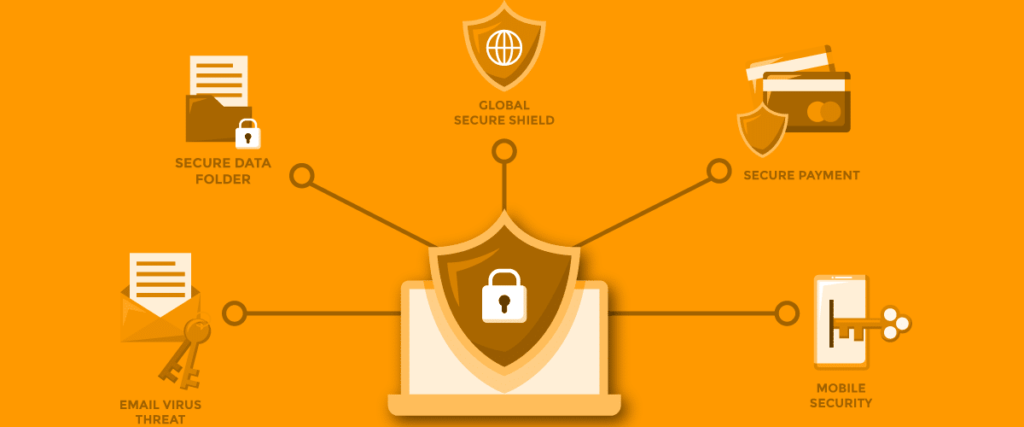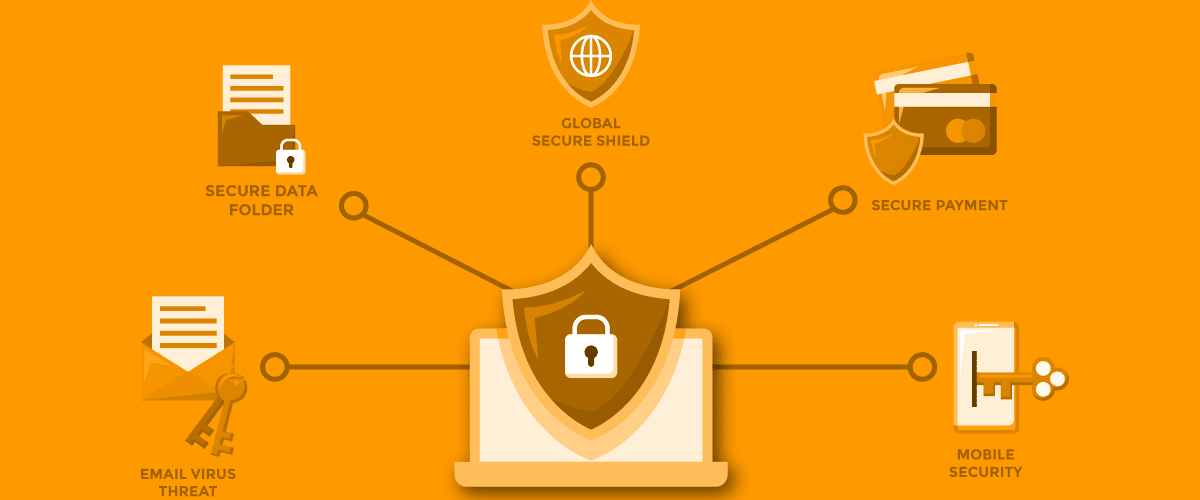Introduction
Your online fortress is only as strong as the security measures you implement. From choosing a quality web host to securing user accounts and communication with visitors, every step counts. Don’t forget to protect your domain name and utilize web application firewalls for added protection. Stay tuned for essential tips to safeguard your online presence!
Importance of Choosing a Quality Web Host
It’s time to fortify your online fortress! When it comes to web hosting, the choices you make can either make or break your website’s security. And we all know how much we love a secure website, right? So let’s dive into the importance of choosing a quality web host like Hostlingo. First and foremost, your web host is like the street your website lives on in the vast world of the Internet. And just like a good school district matters for your kid’s future (or so they say), the quality of your website’s home base counts in many ways. A reliable hosting provider like Hostlingo can directly impact your site’s performance, reliability, scalability, and even its ranking on search engines. So make sure you choose wisely! But here’s the exciting part –Hostlingo can also be your knight in shining armor when it comes to security. We at HostLingo constantly update our services, software, and tools to keep up with the latest threats and eliminate potential breaches. With features like SSL/TLS certificates and DDoS protection, we’ve got your back. And let’s not forget about the Web Application Firewall (WAF) that helps monitor and block serious threats to your site. Oh, the joys of having a reliable host! Another perk? Hostlingo will most likely provide a way to back up your site. So, in case of a hacking disaster, you can easily revert to a stable, previous version. And hey, if you ever run into a security-related issue, Hostlingo will have 24/7 support to save the day. Now that’s what I call peace of mind! With all these fabulous benefits, it’s clear that choosing a quality web host is essential for your website’s security. So make sure you chooses one of Hostlingo offers covers all the features you need, and with a reputation for reliability and excellent performance. Remember, with Hostlingo, it’s time to build that digital fortress!

Strengthening User Accounts and Permissions
Strengthening User Accounts and Permissions: Managing user accounts and permissions on your WordPress site is like being the master of a majestic fortress, where every intricate detail matters. It’s crucial to implement user role limitations and enable two-factor authentication (2FA) to enhance security, especially on shared hosting. By restricting access based on specific roles, you ensure that users only have the capabilities they need, preventing any unwanted tampering or breaches. Imagine giving the janitor access to the king’s treasury, yeah, not a great idea. Incorporating 2FA adds an extra layer of protection by requiring users to verify their identity through another device. So, even if someone guesses their password (let’s hope it’s not their dog’s name), they won’t be able to get past that second line of defense. It’s like having a fortress guarded by trained ninjas and an army of loyal unicorns. Remember, paying close attention to these aspects can make all the difference in fortifying your digital domain against potential threats. So, guard your castle with utmost care and keep those unauthorized intruders at bay!
Securing Communication with Visitors
Securing Communication with Visitors: When it comes to the communication between your WordPress site and its precious visitors, you need to make sure it’s as secure as a bank vault. But wait, are you using shared hosting? Uh-oh, that might pose some security risks. Picture this: your website is sharing resources with other websites, like a crowded dorm room. Now imagine sharing your toothbrush, socks, and personal information with all those roommates. Yikes, not a pretty picture, right? But fear not, brave website owner! There are ways to protect your sensitive data on a shared hosting environment. One of the most important measures is implementing SSL certificates. Think of SSL as your website’s bulletproof vest. By installing an SSL certificate, you create an encrypted connection between your site and your visitors’ browsers. This means that any sneaky hackers trying to intercept sensitive information like login credentials or payment details will be left empty-handed. Another crucial aspect of keeping your site secure on shared hosting is regularly updating your WordPress themes, plugins, and core files. Think of them as your website’s superhero team, fighting off potential vulnerabilities and bugs. By keeping them up to date, you ensure that any security holes are patched and your site remains safe and sound. So, to summarize, on shared hosting, you need to be aware of the risks and implement SSL certificates to encrypt communication between your site and visitors. Additionally, regular updates of themes, plugins, and core files will keep your site protected against potential vulnerabilities. Remember, in the world of web security, prevention is key, and a little caution goes a long way.
Protecting Domain Names
Protecting Domain Names: When it comes to protecting your domain name, you need to be as vigilant as a superhero guarding their secret identity. One essential measure is to keep your domain registration information private. Exposing your personal details online is like inviting troublemakers to your doorstep. So, opt for domain privacy protection services, which act as the invisible cloak for your information, shielding it from prying eyes. But that’s not all! To take your domain name security up another notch, consider changing your admin username. It’s like changing your castle’s gatekeeper so that even if someone manages to breach the defenses, they won’t find an easy way in. By creating a new admin account and deleting the old one, you’re throwing a curveball at potential attackers. Remember, your domain name is the face of your online empire, and keeping it secure is crucial. So, make sure you implement these measures to safeguard your digital realm and keep the bad guys at bay. Happy protecting!

Utilizing Web Application Firewalls (WAF)
Web Application Firewalls (WAF) are like the superheroes of your website’s security. They play the role of a vigilant night watchman, constantly on the lookout for any suspicious activity. With a WAF, you can have peace of mind knowing that your website is shielded from potential threats. But what exactly is the role of firewalls? Well, they act as a protective barrier between your website and the rest of the web. A WAF monitors incoming traffic and detects any malicious users or programs that could harm your site. It’s like having a bouncer at the door of your virtual nightclub, making sure only the right people get in. The benefits of a Web Application Firewall are undeniable. It can prevent attacks, block malware, and keep your website safe from unauthorized access. With a reliable WAF in place, you can focus on growing your business without worrying about security breaches. If you’re using WordPress, you’re in luck! You can install Wordfence a WAF that takes care of monitoring your site for threats. No need to install any additional plugins or tools. Wordfence, malware scanning service, adds an extra layer of protection. So sit back, relax, and let Wordfence handle the security while you focus on making your website awesome.
Web Application Firewalls (WAF) are becoming increasingly important as the number of cyber attacks continues to rise. With the rise of online businesses, cyber threats have become more sophisticated and frequent. A WAF is designed to protect your website from these threats by filtering out unwanted traffic and preventing malicious code from executing. By constantly monitoring your website, a WAF can detect and prevent attacks before they damage your site or data.
A WAF is an essential layer of protection for any website that handles sensitive customer information or financial transactions. Without a WAF in place, your website is vulnerable to attacks such as cross-site scripting (XSS), SQL injection, and remote file inclusion. These types of attacks can compromise your website’s security and lead to the loss of valuable data.
In addition to preventing attacks, a WAF can also improve website performance by optimizing traffic and reducing bottlenecks. By filtering out unwanted traffic, a WAF can reduce server load and improve the overall speed of your website.
If you’re serious about protecting your website, investing in a Web Application Firewall is a smart decision. And if you’re a Wordfence customer, you can rest easy knowing that your website is protected by a built-in WAF and malware scanning service. So why wait? Sign up for Hostlingo today and let us handle the security while you focus on growing your business!



